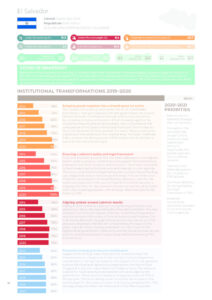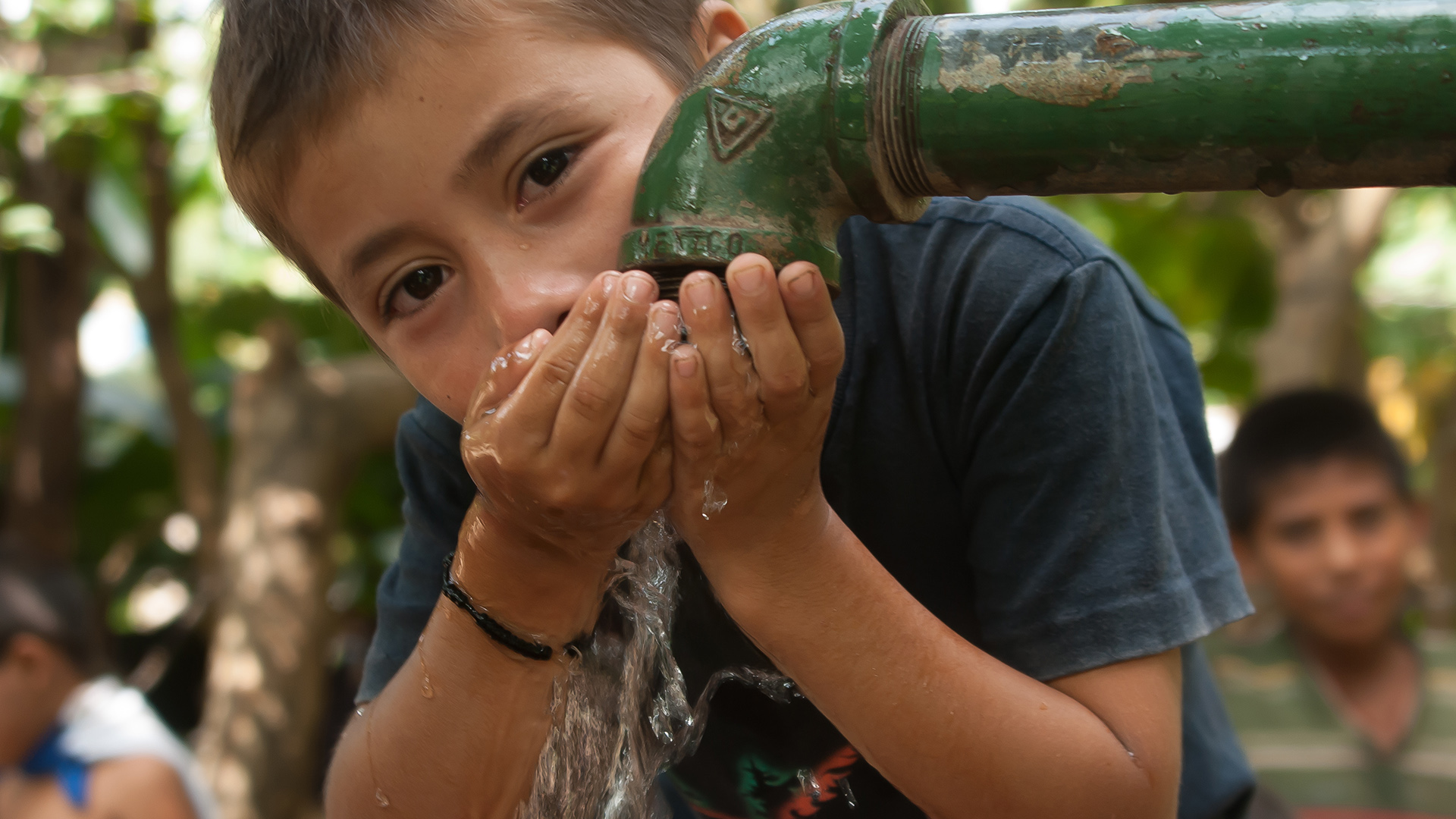Nutrition situation
Under five stunting (%)
13.6
Under five overweight (%)
6.4
Anaemia in women 15-49 years (%)
22.7
Under five wasting (%)
2.1
Low birth weight (%)
10.3
0 to 5-month-old exclusive breastfeeding (%)
46.7
Adolescent overweight (%)
Male: 26.4
/ Female: 32.5
Adult overweight (%)
Male: 57
/ Female: 62.3
Adult obesity (%)
Male: 18.9
/ Female: 29
Adult diabetes (%)
Male: 9.3
/ Female: 10.7
COVID-19 snapshot
Networks of the platform are working on actions within the framework of the emergency recovery stage: formation of the technical working group; support for families with food assistance; promotion of family agriculture; workshops on food and nutrition for community leaders; educational campaigns on healthy food. The food and nutrition security (FNS) and nutrition cluster was established.
Institutional transformations 2019-2020
Bringing people together into a shared space for action
The country continues to work under the multi-stakeholder mechanism, with participation from the government, the United Nations Network, Civil Society Network and actions carried out by academia and private business. Efforts to bring together the Academia Network and private business were consolidated. The composition of the Departmental and Municipal Committees on Food and Nutrition Security remains the same. These committees implement interventions at the national level. The Early Childhood Policy involves the development of FNS actions which will have a national and subnational scope.Ensuring a coherent policy and legal framework
Food and Nutrition Security FNS has been addressed at the highest level in order to position, implement and support the interventions planned in the short, medium and long term. This makes it possible to harmonise interinstitutional work and maintain a work agenda. There is a comprehensive legal framework to protect breastfeeding: Law, Regulation and an Intersectoral Strategic Plan on Promotion, Protection and Support for Breastfeeding. Advocacy work for the review and approval of the Law on Food and Nutrition Security is ongoing. The Plan for Development, Protection and Social Inclusion 2020–2024 is being prepared, with strategic objectives specifically linked to FNS.Aligning actions around common results
Mainly in 2019, technical capacity-strengthening processes were carried out, led by the regional levels of the administration. This had technical and financial support from the World Food Programme and the Institute of Nutrition of Central America and Panama. The Civil Society Network, through Alianza Nutres, has carried out FNS advocacy processes with the aim of positioning the issue on the public agenda. Work is being undertaken on FNS issues at the highest level; government institutions and NGOs are involved, as well as other entities interested in supporting and implementing FNS interventions.Financial tracking and resource mobilisation
Support from foreign aid is important for implementing FNS interventions on a large scale in the country. Fund management coordination to set up new projects with support from aid agencies such as the Food and Agriculture Organization, the World Food Programme and the United Nations Childrens’ Fund. The National Council for Food Security is allocated an annual budget by the government. There are no increases in budgetary costs for FNS in the last year. Efforts are being made to achieve an increase in the state budget for the various actions. Civil Society presented the FNS strategy, prepared within the framework of the Plan Cuscatlán.2020-2021 Priorities
- Have in place a National Strategic Plan for Nutrition.
- Strengthen the networks that are part of the country’s multistakeholder platform. Specifically, the private business and academia network.
- Technical and financial support for carrying out FNS actions.
- Continue advocacy for strengthening the legal framework of FNS.
- Establish coordinated actions for nutrition in the framework of emergencies.
Download

